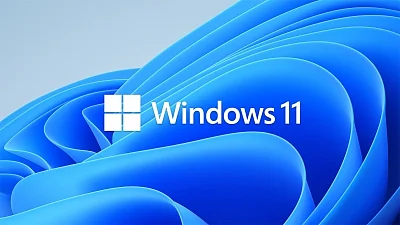After months of speculations, Microsoft finally made it official that it will start rolling out Windows 11 to all of its users, beginning 5 October.
According to Aaron Woodman, general manager of Windows marketing at Microsoft, all eligible devices are expected to receive the free upgrade for Windows 11 by mid-2022.
Windows 11 update will be made available to all Windows 10 users but it seems that Microsoft won't sent the update if they are using an older PC.
Microsoft has tried to clarify what requirements the users will actually need to run Windows 11, but this has only made the situation complicated.
What is Happening?
Ever since Microsoft announced Windows 11, the company has been bugged with questions on minimum system requirements and hardware compatibility for which the company introduced a PC Health Check application on its website.
This application scans your PC with hardware and CPU requirements, and checks if your system is compatible for Windows 11.
However, the application turned to be a disaster, as users with older PCs were indicated that they would not be getting a Windows 11 update, ever.
After which, several fans were outraged. Responding to the backlash, Microsoft explained that Windows 11 will require a special hardware component called Trusted Platform Module Version 2.0(TPM) —usually available in latest PC models —without which PCs won't be able to run the latest Windows.
TPM 2.0 is a type of processor that performs hardware-based cryptographic operations to secure encryption and prevent malicious attacks from attacking your hardware and the boot process.
It should be noted that older PCs are not necessarily equipped with TPM 2.0.
Meanwhile, Microsoft has decided to discontinue the PC Health Check app for a while.
Who Can Upgrade to Windows 11?
Upgrading to Windows 11 won't be easy. Microsoft said that the list of system requirements includes:
1GHz or faster CPU
4GB of RAM
64GB of storage
2.0 Trusted Platform Module (TPM), as mentioned above.
According to Microsoft, new devices will be offered the upgrade first, and then Windows 11 will roll out over time to other in-market devices. This will be based on hardware eligibility, reliability metrics, age of device and other factors.
What's the Catch?
After facing backlash from several of its users over the selective Windows 11 roll out, Microsoft, told The Verge that even if users don't have TPM 2.0, they will be able to install Windows 11 via an ISO file.
That means, as long as your PC meets the minimum requirements you can get Windows 11 all the same. But, the catch here is that you will have to install Windows 11 manually and Microsoft won't send any security updates if you upgrade your PC this way.
It is worth noting that if Microsoft decides to roll out Windows 11 updates to older PCs, it might risk your device and make your data vulnerable to security threats and cyberattacks.
While you may be able to enjoy Windows 11 on an older PC, but you will not be guaranteed any technical support from Microsoft, at least for now. This is the bargain users will have to make.
